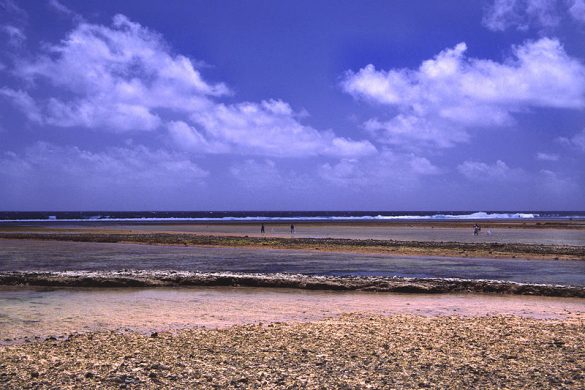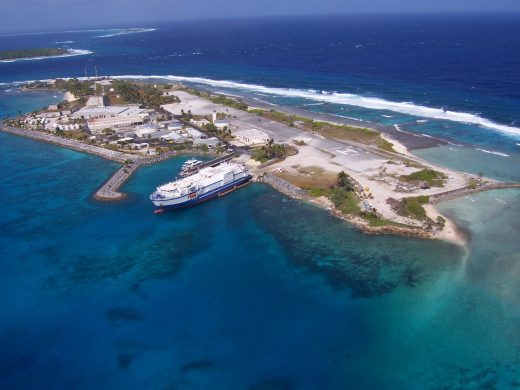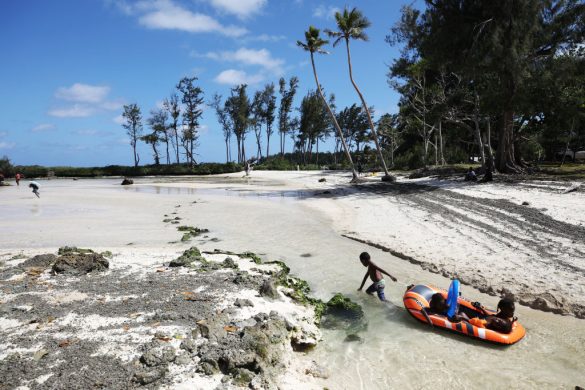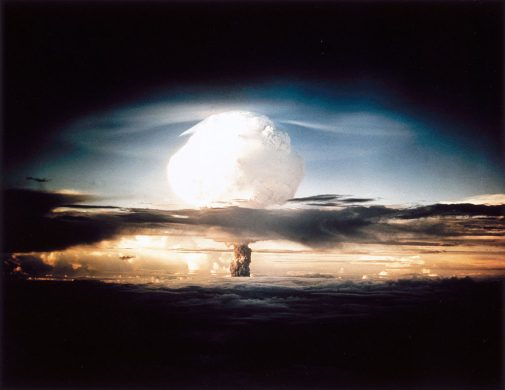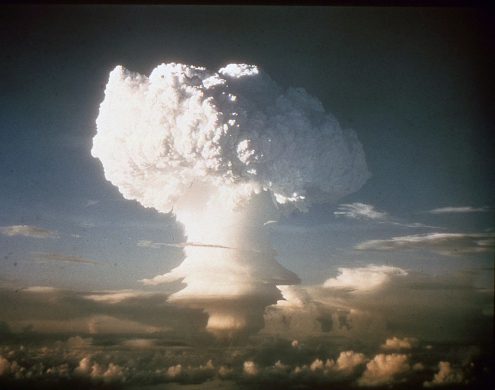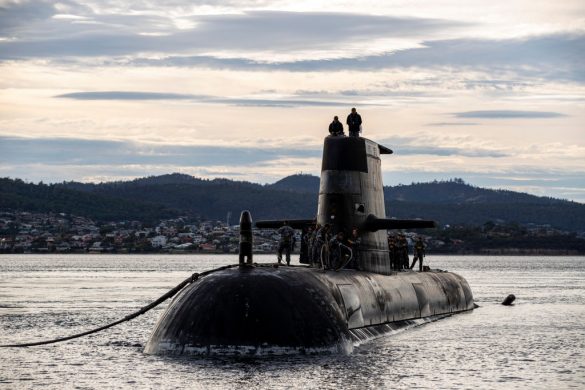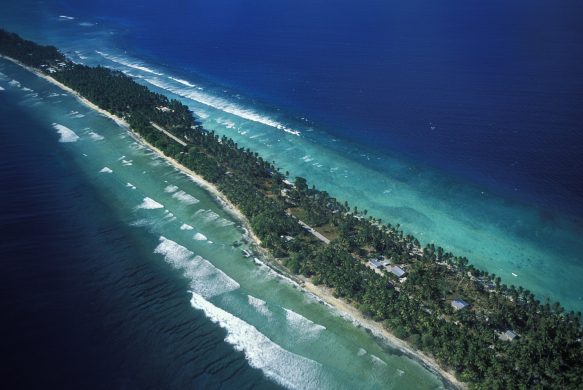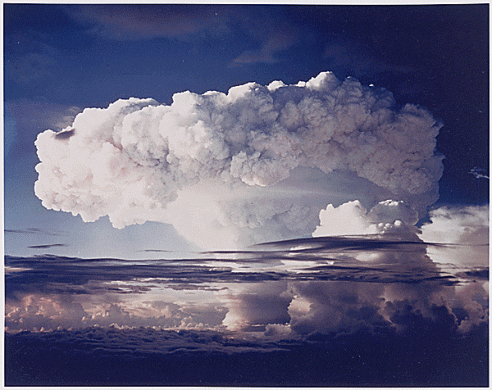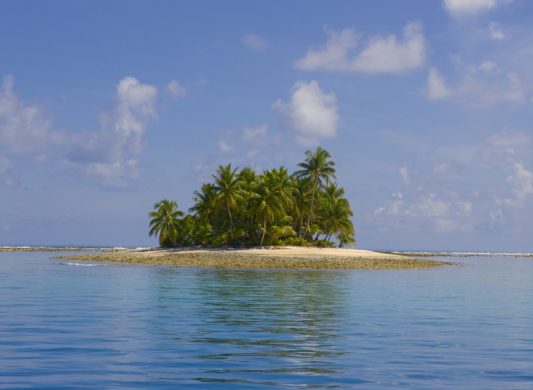Ahead of this year’s annual UN Climate Change Conference COP23 (6-17 November), which will be presided over by Fiji, Marshallese poet and spoken-word artist Kathy Jetn̄il-Kijiner has published a set of poems which convey the struggles and resiliency of the citizens of the Marshall Islands in the face of rising sea levels and an uncertain future.
Kathy received international acclaim in 2014 for her inspirational performance of her poem ‘Dear Matafele Peinem’ to world leaders at the United Nations Climate Summit in New York, a gathering which set the scene for the clinching of the of the historic Paris Climate Change Agreement a year later.
"Save our islands to save the world"
Her new book, ‘Iep Jāltok: Poems from a Marshallese Daughter’ has made history as the first published book of poetry ever written by a Marshallese author. In one of her new poems, she urges:
Save our islands to save the world. It might seem like only our islands are impacted now, but what's happening to our island is foreshadowing what will happen to the rest of the world. If we act now, together, united, to save those of us on the front lines, in the end it will also end up saving the rest of the world.
The Pacific Islands Are the Canaries in the Global Coal Mine
The Marshall Islands is composed of just over 1,000 individual islands and isles – most of which are less than six feet above sea level – and the vast majority of its residents live along the coastline. The country is at risk from increasing coastal inundation, flooding and tropical storms brought on by climate change.
Through her poetry, Kathy seeks to raise awareness of the impacts of climate change on the Marshallese people, and hopes to encourage the international community to honor the Paris Agreement’s central aim to keep the global average temperature well below 1.5 degrees Celsius.
“My hope is that the world will strengthen their commitments to the Paris Agreement and act with the urgency necessary for our islands to survive,” she told us.
This is an excerpt from Kathy’s poem ‘Tell Them’, included in her new book.
Tell them about the water / how we have seen it rising / flooding across our cemeteries / gushing over the sea walls / and crashing against our homes / tell them what it’s like / to see the entire ocean level with the land / tell them / we are afraid / tell them we don’t know / of the politics / or the science / but tell them we see / what is in our own backyard / tell them that some of us / are old fishermen who believe that God / made us a promise / some of us / are more skeptical of God / but most importantly tell them / we don’t want to leave / we’ve never wanted to leave / and that we / are nothing without our islands.
A deeper, personal level
Kathy believes that climate art is necessary because it connects us to climate change on a deeper, more personal level.
“Art gives us the human face, the real emotion behind climate change. Poetry is art, and it does all of this as well. What I like about poetry is that it forces you to focus in on every word, every line. It forces you to slow down, focus on a moment. With an issue as big as climate change, it can be really easy to be overwhelmed. But poetry and art grounds us in the truth, in the humanity of the issue,” she says.
There are numerous other poets from the Pacific Islands who, like Kathy, are working to spread awareness of their communities’ experiences with climate change through the use poems and spoken-word.
Some of Kathy’s favourite Pacific Island poets include Dr. Craig Santos Perez from Guam, who writes love poems in the time of climate change, Samoan-American Terisa Siagatonu who connects climate change to social justice using spoken-word, and Samoan poet Will Giles, whose poems describe natural disasters brought on by warmer temperatures.
These poets may not be physically present at the UN Climate Change Conference in Bonn in November, but the world will be paying more attention than ever to the plight of the Pacific Islands at that event, and there will be many cultural events relating to the Pacific that can help create understanding for their plight – which is ultimately the shared plight of humanity – and momentum for greatly accelerated global climate action.
To read more of Kathy’s poetry, see here.

